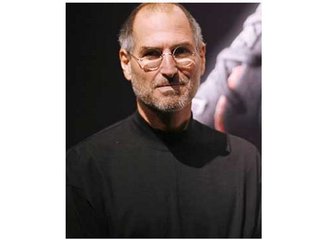
Life without Jobs - future looks solid at Apple
Steve Jobs leaves behind a solid company in strong hands

Much has been said the past three decades about Steve Job's mercurial temperament, and flair for drama. He had the timing of an actor and the flair of a Broadway producer to set up the stage and please the crowd, analysts and technophiles alike. Just ask anyone who has seen a Jobs' unveiling of a new product. "Charismatic" does not begin to describe the man.
Of course, his genius didn't stop at showmanship. But more obviously at his drive to design and deliver to consumers products that were as beautiful as they were innovative, creating a perceived "need" from a "want," or turning a desire into an "I must have." Creating real brand loyalty.
So now, what is to come next?
A lot of comments have swirled around about Apple new CEO Tim Cook's lackluster presentation of the new iPhone 4S at the company's headquarters on October 4, in Cupertino, Calif.
The fact remains that Jobs handpicked Cook from a slew of candidates. And that Jobs had access to the best in Silicon Valley. He left Apple with a solid team. Tim Cook as CEO, Peter Oppenheimer, Chief Financial Officer, and Philip W. Schiller Senior, Vice President Worldwide Product Marketing, are all highly capable businessmen. All off them were handpicked, carefully selected and groomed by Steve Jobs, before his resignation.
Of course the question remains, how about the vision? How about the Apple culture? Now that he's truly gone, it will certainly be different.
An iconic cultural and business figure has passed, but Jobs knew what he was doing. Sterne Agee analyst Shaw Wu said that people shouldn't "underestimate Tim Cook just yet." Wu said: "We don't think Steve Jobs picked Tim without him having somewhat of a 'vision thing.'"
And even though Apple shares fell 1% this morning, following the death of Jobs, it merely reflects the effects of any report on Jobs’ health in the past few years. The stock always bounces back up.
Jobs founded Apple in 1976, along with Steve Wozniak, Ronald Wayne, and A.C. Markkula Jr. so that every day people could use personal computers at home. Apple saw some success with its first series of Apple II computers, but the first Macintosh was released to the public in 1984 and instantly became a hit. Then there's that little thing, being ousted from his own company in 1985, following a power struggle between him and the new CEO, John Sculley, to his triumphant return in 1997, to the then-struggling company.
The legacy for Apple stockholders is one worth $351 billion, proving that Jobs was not only a technology visionary, but a business genius.
At closing time on Wednesday, at a price of $378.25 each, Apple's 928 million outstanding shares are worth more than the combined share values of Microsoft, Hewlett-Packard, DirecTV, Dell and Nokia.
For most of us, Jobs' legacy is one of better products that made us feel "cool."
To the iPod, iPhone, and more recently the iPad, these are products, that have changed how we work, listen to music and communicate with one another--products that have changed how we live.

And Steve, we will be seeing you in the iCloud.
Image source

Ane Howard
I am a social journalist covering technology innovations and the founder of RushPRNews.com, an international newswire.
All author postsRelated News


Steve Jobs - brave enough to think differently
